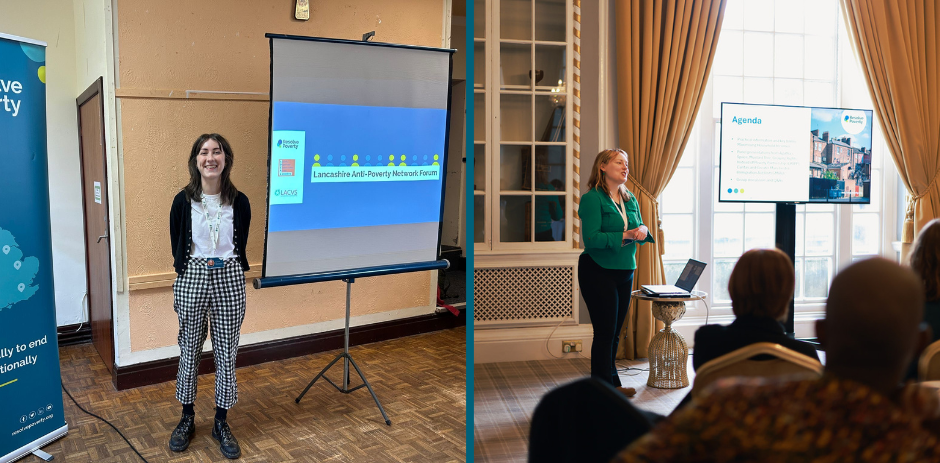By Tom Pottrill, Policy Officer at Resolve Poverty
Local and regional government play a critical role in responding to the financial challenges faced by their residents, exercising a unique ability to deliver strategic and policy responses tailored to local conditions. However, the degree to which they can improve outcomes for those in poverty is constrained by inadequate access to social security data, currently held by central government.
Greater data sharing, alongside further devolved powers, funding and resources, is central to the whole-system approach set forth in our Mission Critical report. We are encouraged that central government has committed to pilot Universal Credit data sharing with some councils from next Spring. But the evidence is already clear: devolving access to social security data to all local and regional authorities would enable them to tackle poverty more effectively now. Here’s how.
Fundamentally, local and regional authorities require DWP/HMRC data on households in receipt of Universal Credit (UC) and legacy benefits to identify and target financial support. Take Free School Meals (FSM), a locally administered benefit for children in low-income families. Central government recently announced that eligibility for FSMs will be extended to all children living in households in receipt of UC, beyond just those with a household income of up to £7,400. This welcome announcement has potential to lift 100,000 children out of poverty, according to the IPPR. Although schools will not receive additional Pupil Premium funding, estimated at almost £1300 per pupil by Policy in Practice, low-income families should still reap the additional benefits of passported eligibility for the Holiday, Activities and Food (HAF) programme.
For these children to be lifted out of poverty, however, their family still must enrol them for FSMs. This rests on the strong assumption that eligible families overcome well-documented practical barriers, such as the stigma or embarrassment attached to registration, or low IT skills, digital exclusion and low literacy that make the application process complex and inaccessible for many parents. For the reform to achieve its desired impact in bringing down child poverty rates, the most watertight approach is for local authorities to auto-enrol into FSMs all children living in households that claim UC, as we called for in our submission to the national Child Poverty Strategy. Which brings us full circle: to auto-enrol eligible children into FSMs, local authorities must first know which children are eligible, in turn requiring devolved access to UC data currently housed in central government.
FSMs are just the tip of the iceberg. While FSM auto-enrolment could save low-income families around £490 per year, Council Tax Support (CTS) auto-enrolment could generate even greater savings for low-income households – to the order of more than £1500 per person according to Policy in Practice. An estimated £3.41 billion in CTS is unclaimed by over 2.25 million eligible people each year. Although eligibility criteria are at individual councils’ discretion, CTS is designed to support those on low incomes, often passported by receipt of national benefits.
While exact figures are unavailable, if extending FSM eligibility can support 100,000 children out of poverty and CTS provides significantly higher savings for low-income households, it is reasonable to assume that CTS auto-enrolment would lift a significant number of people out of poverty and reduce the depth of poverty for other families. Better data sharing between central and local government is not, therefore, just a ‘nice to have.’ The Child Poverty Strategy should recognise this and support local authorities to introduce auto-enrolment in local welfare, through a robust commitment to devolve the requisite social security data.
Not only is better data sharing the key enabler for councils to introduce auto-enrolment into local welfare, but it can also support councils’ welfare rights and debt advice services to be more effective in improving outcomes for those experiencing poverty. A central component of the local welfare patchwork, in-house and commissioned welfare rights services are essential in helping low-income households access the support they are entitled to. Yet, as participants in our Mission Critical research highlighted, patchy access to relevant data limits how effectively these services can identify and reach people who have “fallen below the radar” under existing powers
National policy has further weakened these services over recent years. One participant in our Mission Critical research told us that subsuming Housing Benefit, a locally administered benefit, into UC “sucks the data back up” to central government, making it harder for councils to identify those in need of support. To compound this, since they are not on a statutory footing, the LGA note that many councils’ welfare rights services have been at the brunt of funding cuts, with some areas like Nottingham and Herefordshire losing them entirely.
All this only strengthens the case to end the postcode lottery of local welfare support. To rectify it, and to strengthen the impact of the Child Poverty Strategy, central government should devolve data access alongside ring-fenced funding for local welfare rights and debt advice services. Over the longer-term, they could consider a statutory duty for local provision of such services, backed up with protected funding. As in our Mission Critical report, we recommend that councils utilise this investment and data powers through three key means: i) Increase take-up of UC housing costs element; ii) Target and signpost eligible recipients to utility bill social tariffs; iii) Automatically offer advice on their financial situation to all recipients of local financial support to help overcome underlying needs. To maximise financial gains for those experiencing socio-economic disadvantage, this includes delivering discretionary crisis support from the new Crisis and Resilience Fund through a cash-first, advice-based approach, as we have argued recently.
In sum, despite often being lamented as “dull”, data holds exciting potential to deliver better outcomes for those living in poverty. Whether through auto-enrolment for local welfare or effective targeting of households by welfare rights and debt advice services, better data sharing can help ensure that fewer people fall through the net. This supports a broader effort by local and regional government to sustainably reduce and prevent poverty. The Child Poverty Strategy must commit to devolve the data.
This is the fourth in our serialisation of policy recommendations from our Mission Critical report. Our next article will outline our recommendation for regional anti-poverty partnerships that convene system partners, across local and regional levels, to drive effective strategic, policy and practical responses to poverty.
——————————————————————-
This article is featured in our 6 August newsletter.
Want to hear about the latest poverty research, stories and events?
Stay on top of what you need to know. Sign up to our newsletter and join our powerful network of 3.9k+ professionals, volunteers and individuals actively engaged in tackling poverty across the UK.







